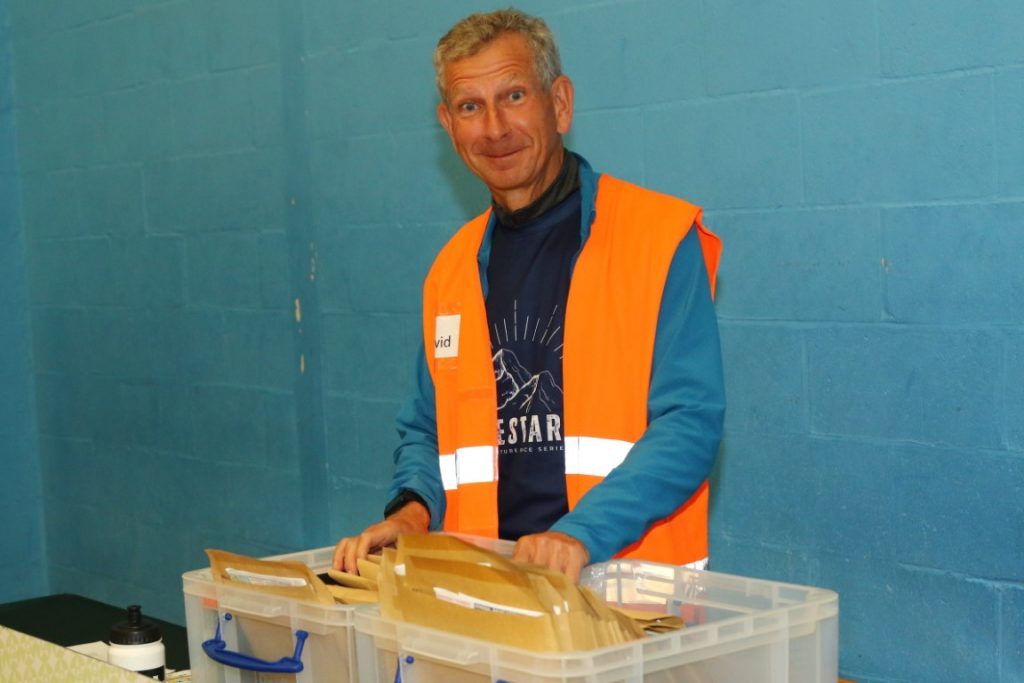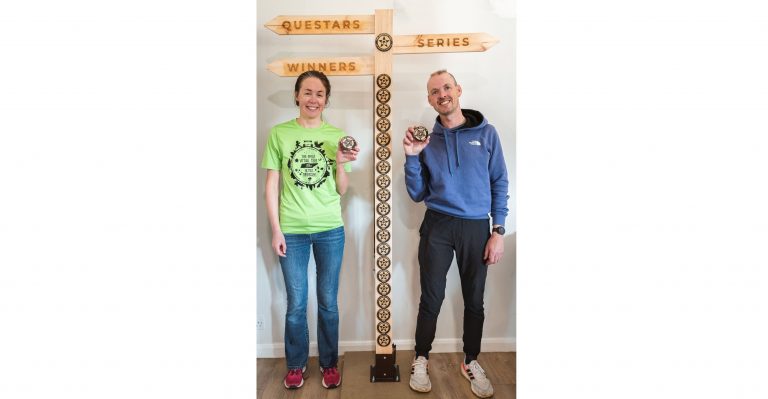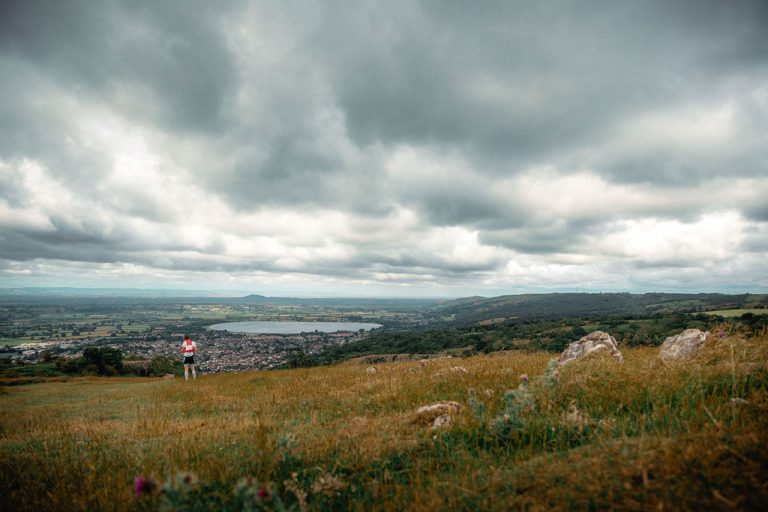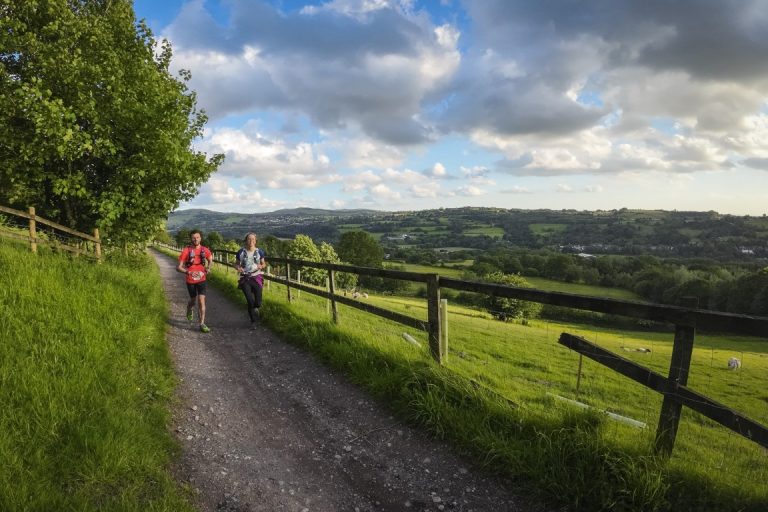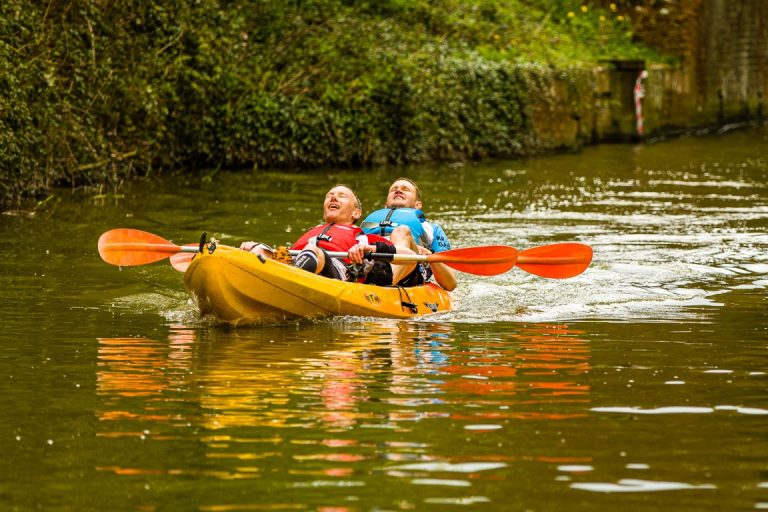
- Saturday 4 May 2024
Our featured racer of the month is David Hunt. David was our first ever Series winner in 2003 and he has been a regular fixture at our races ever since. Here David shares his tips and experience from over two decades of Questars Adventure Races!
Why did you first get into adventure racing?
To get colleagues involved in a major charity fund-raising activity I initiated Lloyds Bank’s involvement in the UK Challenge back in 1993. This major multi-disciplinary corporate team event involves trail running, mountain biking, kayaking, and many special stages, with lots of navigation and strategy. I so enjoyed all these I was hooked on adventure racing
Fast forward to 2002, I attended a Questars event weekend over the Malvern Hills for selection for the UK Challenge. There I teamed up with Teresa, Gerry, Rachel, Matt (who went on to win the Questars series three times in a row from 2007 to 2009) and Nellie (who many Questars participants will know as she helps at many Questars events). We attended further Questars adventure races, trained hard together and became the first mixed team ever to win the UK Challenge.
So that boost further ignited my involvement in adventure racing. I competed solo as The Dark Horse and won the inaugural 2003 Questars series. And then my hobby became my new occupation as I decided to leave Lloyds and join the Questars team, becoming Questars Race Director.
I much enjoyed sharing my enthusiasm and experience of adventure races and creating, planning and delivering Questars events right across the UK. Meanwhile, I was still competing in orienteering, mountain marathons and varied adventure races.
I stepped down from Questars in 2012 to enable me to be a Games Maker volunteer for London 2012 and also deepen my participation in international orienteering. Since then, I’ve been pleased to continue my involvement by helping out at Questars events whenever possible.
What do you like most about adventure racing?
The combination of multi stages, navigation, strategy and team work all set in the great outdoors in some wonderful countryside.
Also the flexibility of the format allows race directors to adapt courses to suit the terrain. The lack of national rules and regulations enables adventure racing to be dynamic and free to adopt new innovations quickly and appeal to newcomers.
Above all adventure racing creates lasting memories, great challenges, cohesive teams, buoyant supportive communities of like minded participants and lasting friendships and relationships. Two marriages within my original six adventure racing team members have resulted in five children, two of which are my god daughters!
My own career change from banking to event organiser is proof that adventure racing can be truly life changing.
When did you participate in your first Questars adventure race?
2002! I remember well my very first Questars with yellow inflatable kayaks that many others may recall. It was based in the lovely Wiltshire Downs. As a very inexperienced kayaker, unable to properly steer, I kept going round and round in circles on the Kennet & Avon canal!
Not many who remember those early Questars will miss the yellow inflatable kayaks that were replaced with the fleet of rigid indestructible sit-on-tops that still serve as a stable base for the water stages. The multiple laminated course map sections with hand drawn checkpoint locations from the early years are definitely not missed either!
Roughly how many Questars adventure races have you participated in?
As a participant (in 2002 & 2003), I took part in at least a 15 Questars, as in those early days there were over 10 Questars events spread over the year.
As a Questars Race Director from 2004 to 2012, I planned and organised well over 50 events, including several two-day Questars, (Q2), which I’m thrilled to see return to the Questars calendar in June 2024.
As a Team Questars helper from 2013 to date perhaps a further 30-40 events.
You were our first ever Series winner in 2003, what was the Series like then?
Back then, we had inflatable kayaks and laminated maps which we had to hand draw our own checkpoints onto!
In some respects though, the Series was very similar to today as the format has stood the test of time. The score-based format with variable valued trail running, mountain biking and kayaking checkpoints has always been a feature.
The same friendly supportive atmosphere I remember from my first Questars over twenty years ago continues through to today, as do many of my fellow participants from way back then. It’s always particularly good to see them return, alongside many newcomers, as I greet them, now as a helper, at Registration or on the Start line or around the course.
What have been some of the biggest changes you have seen in Questars adventure races over the years?
There’s been both a lot of continuity and continuous development within Questars.
The format is still very much as it was created, as is the desire to provide participants of all levels with a great friendly experience aided by cheery marshals.
There’s always been a strong emphasis in course design on myriad route choices. This allows top level athletes and complete newbies to all enjoy their own choices of route with good strategy being rewarded. Inclusiveness with Masters and Novices competing on the same course map has always been a key feature with Questars participants coming from many different sports and none.
The ambience has also always been friendly and supportive, enabling everyone to take home good memories of completing their own challenge alongside a group of like minded outdoor enthusiasts many of whom have become firm friends.
And there has been, a lot of continuous development of Questars.
The quality of the course maps has improved tremendously. I was pleased to replace laminated with waterproof paper maps and later digital maps with computer added additional information rather than photocopies.
Scoring technology has been transformed too from those early events with the infamous pin punches through to the super-fast scoring dibbers that we have now.
I’m looking forward to seeing the strong tradition of Veteran participation develop further as the innovative new veterans scoring will enable more experienced participants to continue to compete strongly. And the new National Championships combining the best scores across both the Summer and Winter Questars series will be great to watch.
What’s race day like when working on a Questars adventure race?
There’s a lot to do to set up the event in time to welcome competitors. As a helper, it’s about seeing what’s still needed to be done; be it getting Registration ready, putting out signage, ensuring the Questars Cafe is up and running, marking out car parking or bike transition, or setting up the Start/Finish arch. Then it’s all about welcoming participants and answering queries.
I particularly enjoy the Start and getting racers off on their adventure. Then it could be some clearing up, marshalling transition, perhaps at the always exciting kayaking transition point, or going out and about around the course to check on checkpoints before returning to greet finishers across the line or helping them download their results before heading out to collect in some of the checkpoints. There’s also cleaning up after the prize giving and packing away all the kit including some grunt work loading up the fleet of kayaks.
So it’s a long day for helpers, always sustained by camaraderie and Kim’s provision of food and good cheer.
What do you like most about Questars adventure races?
The many opportunities it creates.
Opportunities to experience new challenges, new locations, new courses, new things. And above all opportunities to meet new people and create new memories.
It’s the community of like-minded competitors and helpers all intent of having a great adventure in the great outdoors that I most like about Questars.
What advice would you give to someone just getting started in adventure racing?
Don’t hesitate – get involved.
Come along, pitch in, learn from your initial experience and from others.
Read up in advance the great advice and tips on the Questars website. I recommend in particular the tips of two recent Questars Champions, Campbell Walsh and Daniel Thorby, in January and February 2024.
Be realistic on what you set as an objective initially and major on your strengths.
Continually learn from your experience. Review what you enjoyed and did well at and what you didn’t like or didn’t do so well at. See what you can do next time to increase the former and less of the latter. For me it was initially learning how to steer a kayak and avoid going round in circles!
What is the best piece of advice that you were given when you started adventure racing?
Expect the unexpected, and be flexible.
Expect on occasions seas of mud, or getting lost, or that pesky puncture at the furthest checkpoint. So always build in some contingency time when planning and revising your route to cover these unexpected events.
Ensure you understand the scoring mechanism – how to gain points and how to avoid penalties. Think through and continually adjust, when you are out on the course, that all important equation between time use and points gathering.
The great new innovation of awarding you up to 15 points for arriving back up to 15 minutes early encourages you all to build in that time contingency, and then if it’s not all needed you get those bonus points for being back a little early!
What’s the one piece of non-mandatory kit that you think everyone should carry in their bag?
A platypus or water bladder with a tube to allow you to easily keep drinking on the go. Try never to feel thirsty. Having that regular intake of liquids is key. If you feel thirsty you are already under hydrated and so your performance (both physically and mentally) is impaired.
What’s the worst mistake you’ve ever made during an adventure race?
Misreading a grid reference and so plotted a checkpoint on the wrong side of River Wye in the early days before pre marked course maps. It took me ages to realise my mistake and then even more time to get to the other side and find the correct location in the Forest of Dean (or the Forest of Doom! – that sobriquet for the (delightful) Forest of Dean has stuck ever since that incident).
What’s the weirdest/funniest/strangest thing that has happened to you during an adventure race?
When racing around Wimbleball Lake in Devon our team split up with the two runners agreeing to meet up with our pair of mountain bikers at a checkpoint by the huge high dam after each collecting some bonus points. But we didn’t read the checkpoint description properly. So instead of rendezvousing on the top of the dam wall, my partner and I ran a route to the foot of the massive concrete wall only to hear in the far distance above us shouts of ‘’up here’’ from our other teammates and then we had to clamber up hundreds of steps to check in together as a team.
We still chuckle about that damn wall. We didn’t laugh at the time.
What is the most difficult part of adventure racing?
Not being enticed to that furthermost checkpoint too late in the day in search of that critical margin over your nearest rival.
What are your top five tips for adventure racing success?
i. Prepare everything (kit, clothing, food, drink and mind) well in advance and have your transition box packed the day before race day. Then have a good night’s sleep knowing all is ready.
ii. Upon arrival check out the location of the Start & Finish and assess routes to and from them. The hardest navigation is often when you first start and you are unfamiliar with the map or locality, and when you are fatigued and running out of precious seconds at the end.
iii. Play to your strengths and recognise and improve your weaknesses. I’m a stronger runner than biker and so nearly always ran first if the kayaking time slot and course allowed. I reckon most participants can benefit from a bit of gravity or simple drafting in the latter part of race on a bike but if you are on two feet then you’ve nothing but yourself to keep you moving.
iv. Build in that contingency of time and energy to allow you to really enjoy your race, and to deal with those unexpected things that often do add spice to your adventure. Listen carefully to the Race Director’s briefing as often there is information about the course condition.
v. Always remember you are guests in the great outdoors. Savour and respect the countryside. Always keep to public rights of way, promote good relations with the locals, pick up other people’s litter and be great ambassadors for adventure racing.
Thank you, David! A great write-up and some excellent tips for anyone looking to improve their adventure racing.
Do you fancy giving adventure racing a go? Follow the link below to sign up to our next events:
The Questars Series Championship
Each year we run the following competitions:
- Our National Championship
- Our Summer Series Championship
- Our Winter Series Championship
Full details can be found on our Series Championship page.
We look forward to seeing you soon for an adventure!
News Categories
2024 Adventure Races

